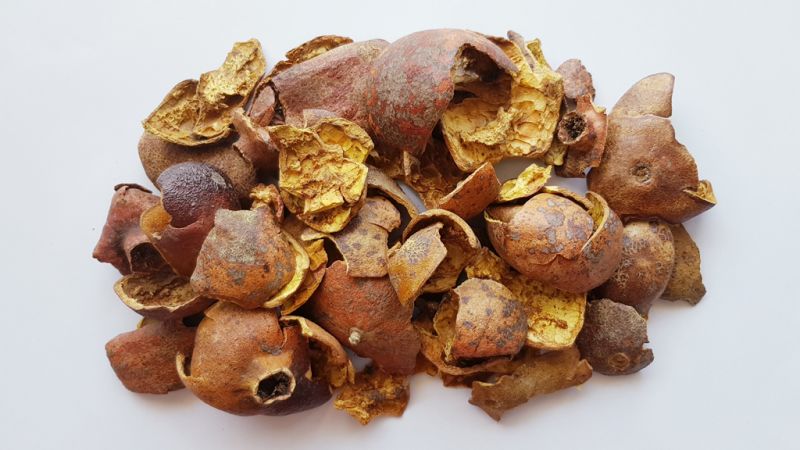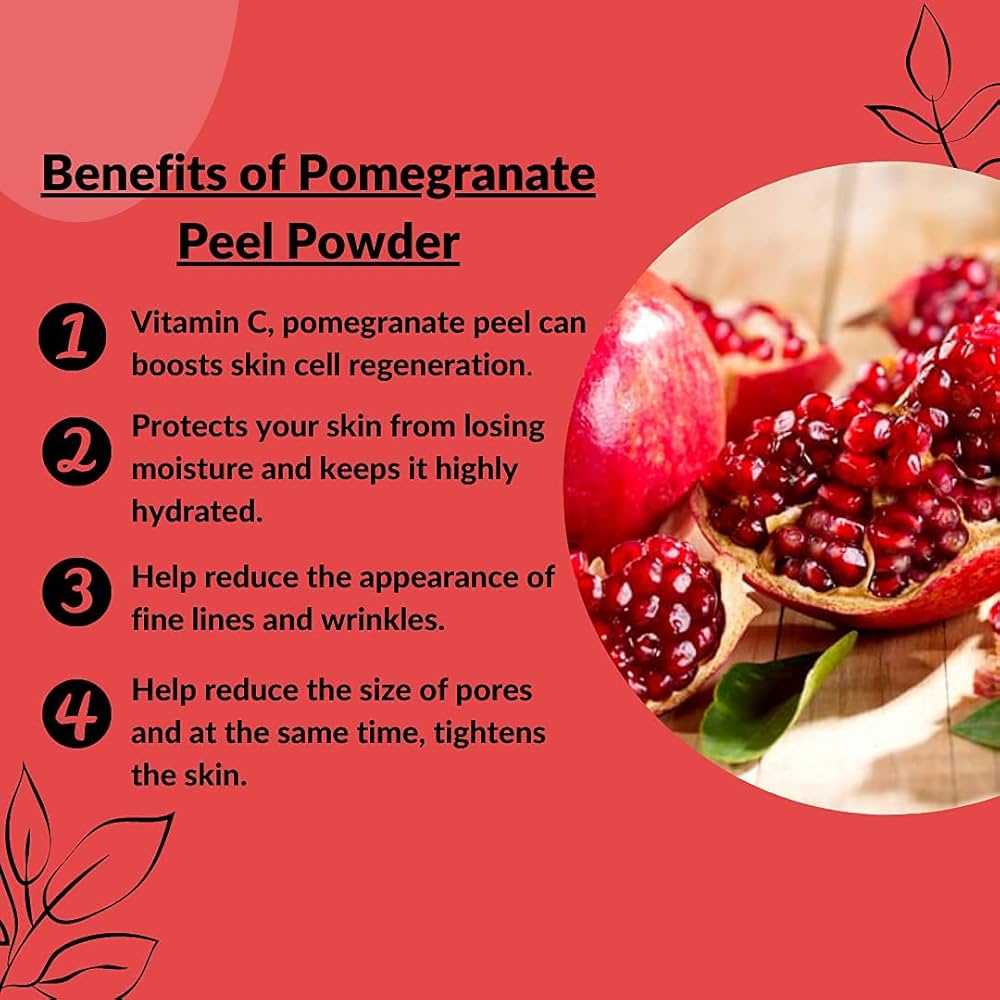INTRODUCTION
Pomegranate peel is the outer skin of the pomegranate fruit, which is rich in antioxidants, polyphenols, and tannins. It is used in traditional medicine for its antimicrobial, anti-inflammatory, and astringent properties.
Forms

Pomegranate peel can be used in several forms, including:
- Powder: Dried and ground pomegranate peel, often used in supplements or as an ingredient in skincare products.
- Extract: Concentrated liquid or powdered form of pomegranate peel, used in dietary supplements and medicinal formulations.
- Tea: Brewed from dried pomegranate peel, consumed for its health benefits or used in traditional remedies.
- Tincture: Alcohol-based extract of pomegranate peel, used for its concentrated medicinal properties.
- Topical Applications: Creams, masks, or ointments containing pomegranate peel extracts for skin care.
Health Benefits
Digestive Health
Pomegranate peel’s astringent compounds can help treat gastrointestinal issues like diarrhea and dysentery by tightening tissues and reducing inflammation in the digestive tract.
Oral Health
The antimicrobial properties of pomegranate peel can help combat oral pathogens and reduce gum inflammation, contributing to healthier gums and teeth.

Skin Health
Antioxidants in the peel help fight oxidative stress, while anti-inflammatory agents can reduce acne and skin irritation, leading to clearer and healthier skin.
Cardiovascular Health
The antioxidants in pomegranate peel help combat oxidative stress and inflammation, which are linked to heart disease, potentially supporting heart health and reducing disease risk.
Weight Management
Pomegranate peel may assist in weight management by enhancing metabolic rates and reducing fat accumulation, thanks to its impact on metabolism and fat metabolism.
Side effects
Pomegranate peel is generally safe for most people when used appropriately, but it can cause some side effects, including:
- Gastrointestinal issues
- Allergic reactions
- Medication interactions
- Skin irritation




